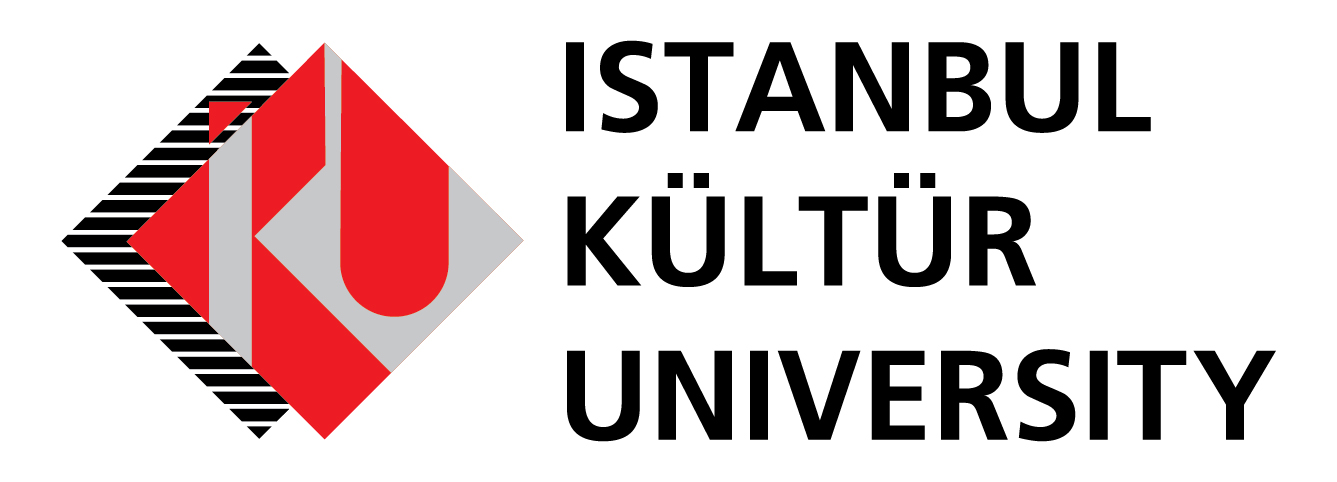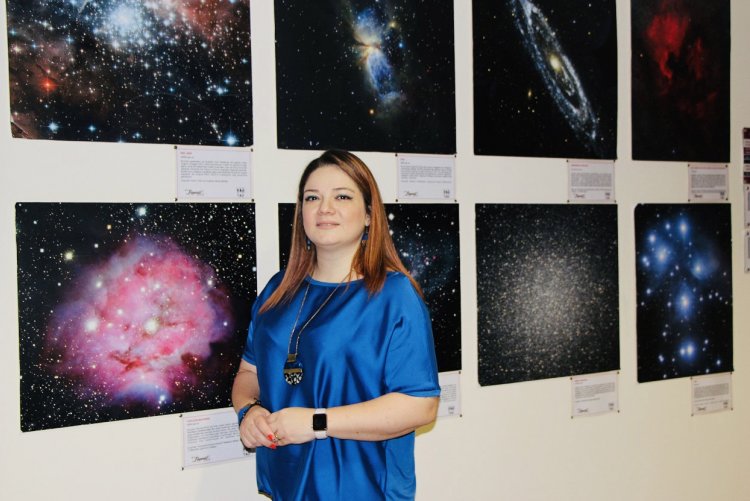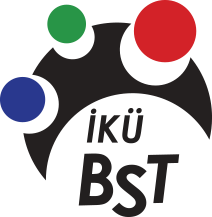Noting that trained manpower is very important in achieving the objectives of Turkey's Space Program, İKÜ Department of Physics Vice President Asst. Prof. Ayşegül F. Yelkenci also said ‘’There is a lot of work to be done in the space field. We can even say that there is no other field of science open to so much change and exploration”.
"Turkey is rapidly Shows Progress”
Asst. Prof. Ayşegül Yelkenci stated that the Turkish Space Agency will create a driving force by gathering space and academic astronomical studies under one roof, and said that the program is a desired and expected stage by the astronomy community and space engineers. Saying that Turkey has enough academic infrastructures for to do space studies, she emphasized the importance of encouraging researchers and training qualified manpower in achieving the program's goal with the following words:
"Both TÜBİTAK and universities have studies in the field of space in our country. There are academicians working on earth observation satellites, scientific satellites for astronomical purposes, and space weather. Any initiative that will increase the project support of our observatories will encourage researchers. Although the rocket trials started in satellite 2020 within the framework of projects under TÜBİTAK Space and in some universities are very new, rapid progress is being made. When it comes to working with satellite data, much more manpower will be required. In summary, it is very important to support qualified workforce and young people who are interested in this field in achieving the program's goal.’’
"Space is the Profession of Today and the Future"
Stating that different branches of science work together in the field of space, our teacher said the following to young people who aim for a career in this field:
“Young people who want to work in the space field don't necessarily have to be astronomers. This is a versatile field. For example, astronomers, astrophysicists, physicists, physics engineers, geologists work in determining and evaluating the basic targets in the construction of a satellite. In the construction of satellite elements such as silicon chips and circuits, experts from other fields such as electrical-electronics engineers, physics engineers, solid-state physicists are also working. Aircraft and aerospace engineers, rocket engineers, orbital mechanics experts and mathematicians are working together during the launch of the satellite. Computer and software engineers, math-computer graduates, data scientists are involved in the processing of the data obtained after the satellite is launched and preparing the automatic pipeline. Not only satellites but also large telescopes to be built, such as an optician and a mechanical engineer, need manpower to understand the construction and perspective of the telescope."
Asst. Prof. Ayşegül Yelkenci stated that the Turkish Space Agency started posting jobs in different disciplines before the program was announced, and pointed out that space is always the present and future profession and made the following suggestions to the students:
“There is a lot of work to be done in the space field. In fact, we can say that there is no other science area open to so much change and exploration. Collaboration with different disciplines also increases career opportunities in this field. There is even a branch called astroarcheology, which examines astronomical information in ancient ruins on earth with archeology, astrobiology, who studies extraterrestrial life with biologists, and even medical astronomy, which is caused by the health problems of astronauts and experts who travel to space. Numerical simulations are needed to reduce and easily process the observation data that come in terabytes every day in the space field, and sometimes to understand the inner structure of stars or the collisions of galaxies. Supercomputers, parallel programming, computers using distributed processing techniques, software engineers and data scientists work for this job. I recommend that young people who are interested in space and want to pursue a career in this field should first do research from the right sources. Let them trust the resources provided by official institutions such as universities and space agencies. "
Is It Worth The Investment?
Pointing out that all investments from space-related education to industry will contribute to science and economy in the medium and long term and by stating that space research inspired many products we use today our professor said that:
"The questions of whether there is a need to invest so much in space and what will it bring us are also discussed. A space project requires different scientists to work. It develops innovative technology companies that take care of R&D by cooperating with the industry. Most importantly, every scientific project inspires a new one. For example, if we can take selfies today, we owe it to the Hubble Space Telescope because digital camera chips CCDs were developed and developed for the first time in the Hubble space telescope and entered our mobile phones. The technologies we wear on our arms today that count our health, heartbeat, and steps were born from biosensors developed to constantly monitor the health of astronauts and experts in the space station. Borcams, teflon pans, ballpoint pens, wet wipes, diapers, Gore-Tex raincoats, fleece… In short, there is much more space in our lives than we think.’’
Asst. Prof. Ayşegül Yelkenci stated that education investments are also important in the development of work in the field of space:
"Awareness of astronomy should be gained from a young age. Compulsory astronomy lessons will start in high schools in our country next year. As Kültür University, we offer space awareness and astronomy lessons to all our students. We have 3 Selective Out of Space courses on astronomy and space. This year, we will open a new one for our Faculty of Education students. We are working with the Turkish Astronomy Association and the Ministry of National Education not only for our own university, but also for teachers who are currently working but want to improve themselves. We organize at least 5 workshops a year. In addition, in 2020, we brought together a very comprehensive book AstroBilgi, especially teachers and students interested in Space, with readers from IKU Publishing House.’’


